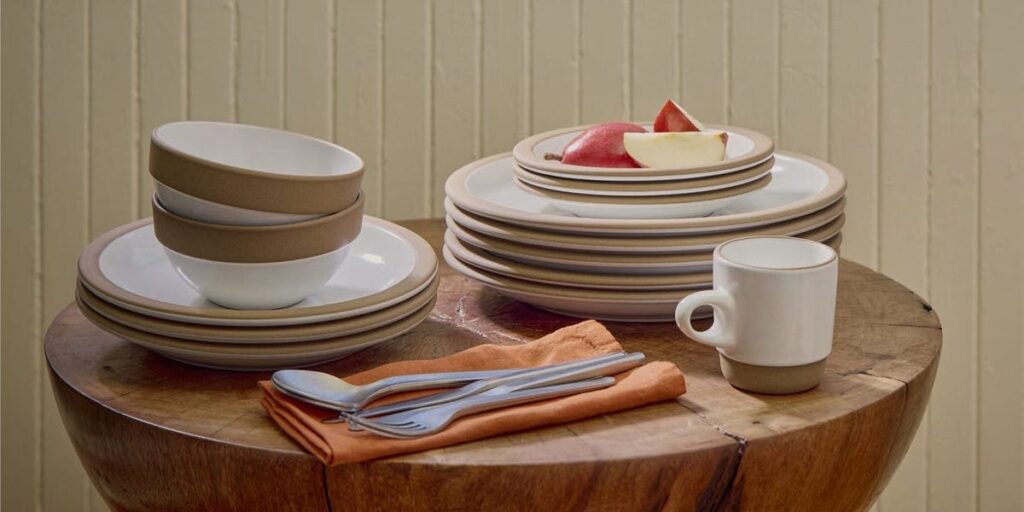As tariffs drive up the cost of imports and bite into household budgets, some American companies are amping up their secondhand offerings and avoiding the tariff question altogether.
For Health Ceramics, a California-based pottery business with a relatively new resale program, this economic moment has brought a silver lining in the form of a booming peer-to-peer market for used goods.
A single new Heath plate costs between $30 and around $200, depending on factors like size and rarity. By comparison, the average imported 10-inch stoneware plate on Target’s website is listed at $3 each pre-tax.
“You are buying a piece of ceramics that was actually made by your neighbor with clay that came from California, a few hours away,” Meghan Wernetti, Heath’s director of creative operations, told Business Insider. “You’re not paying for a 21-day cruise across the ocean.”
Heath has always known there was a booming secondhand market, says Wernetti, but they didn’t launch their peer-to-peer marketplace until last year.
With tariffs driving up prices for new products overall for most businesses, Heath is doubling down on its “Pass the Plate” resale program by launching a vintage market next month in its tile factory in San Francisco, and trying out buybacks for those looking to pass on their Heath products.
“If these changes help shine light on a different way to do business that can still be very sustainable and fulfilling for customers and employees, that would feel like a silver lining, of what is otherwise a hard moment in the short term,” said Wernetti.
Wernetti recognized that being American-made alone may not convince people to pay a higher price, but emphasizing the long-term value has drawn in more customers and more traffic for its online site.
“It reinforces the idea that Heath is for collecting — it holds its value,” Wernetti said. “You can love it for 10 years and then pass it on, and it’s still going to be just about as good as new.”
Secondhand is having a moment
Secondhand shopping is receiving a boost, both for curated high-end vintage and regular necessities.
Vintage resale platform Chairish told BI that after it launched an “American Vintage is Tariff Free” ad accompanied by a collection, the company saw a 100% to 700% increase in engagement and rate of sales, which it said is “unprecedented.”
A spokesperson of secondhand platform OfferUp told BI that the site saw a 22,914% increase in searches for “uppa” after tariff price hikes took effect for some popular baby stroller brands like UPPAbaby in early May. One stroller retailer told Business Insider in April that the brand’s strollers, which are made in China, would cost $1,199 — up from $899.
Beyond helping people pass on their dinnerware, Wernetti said Heath’s resale program is strengthening its relationship with customers and allowing consumers to rethink a “race to the bottom” mode of production in which wages and quality are continuously slashed to meet a lower price point.
“It’s not about nostalgia or framing Heath as a relic of a different time,” said Wernetti. “It’s about doing things in a way that makes sense — for the people who make the product, the people who use it, and the worlds in between.”
Read the full article here


